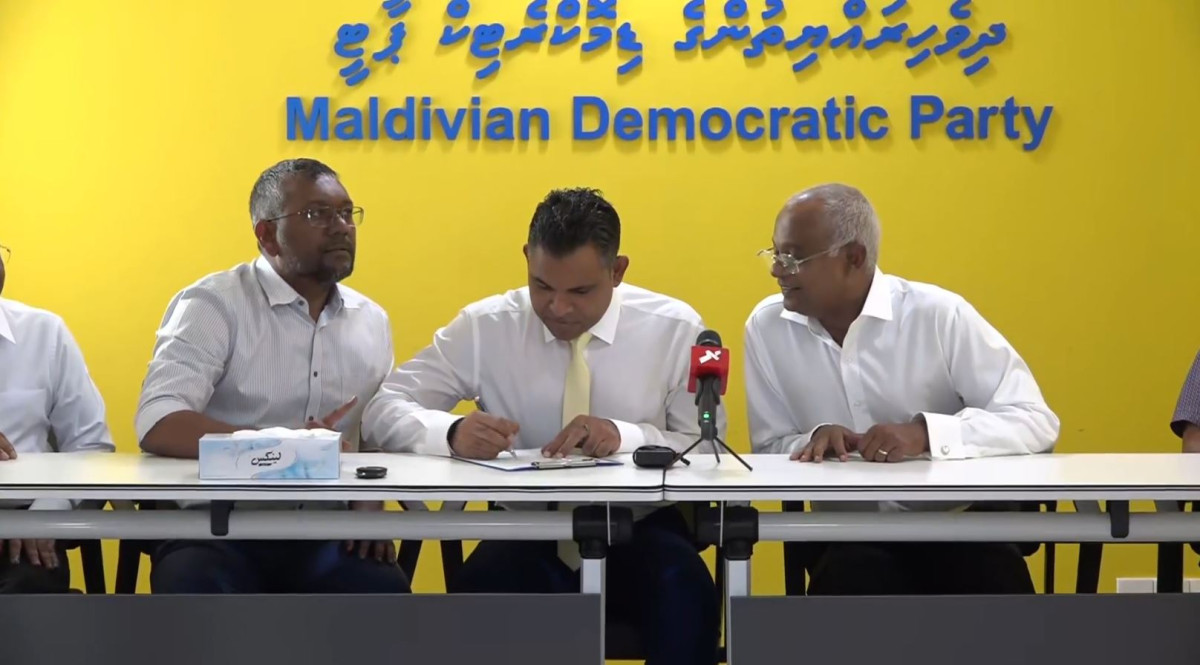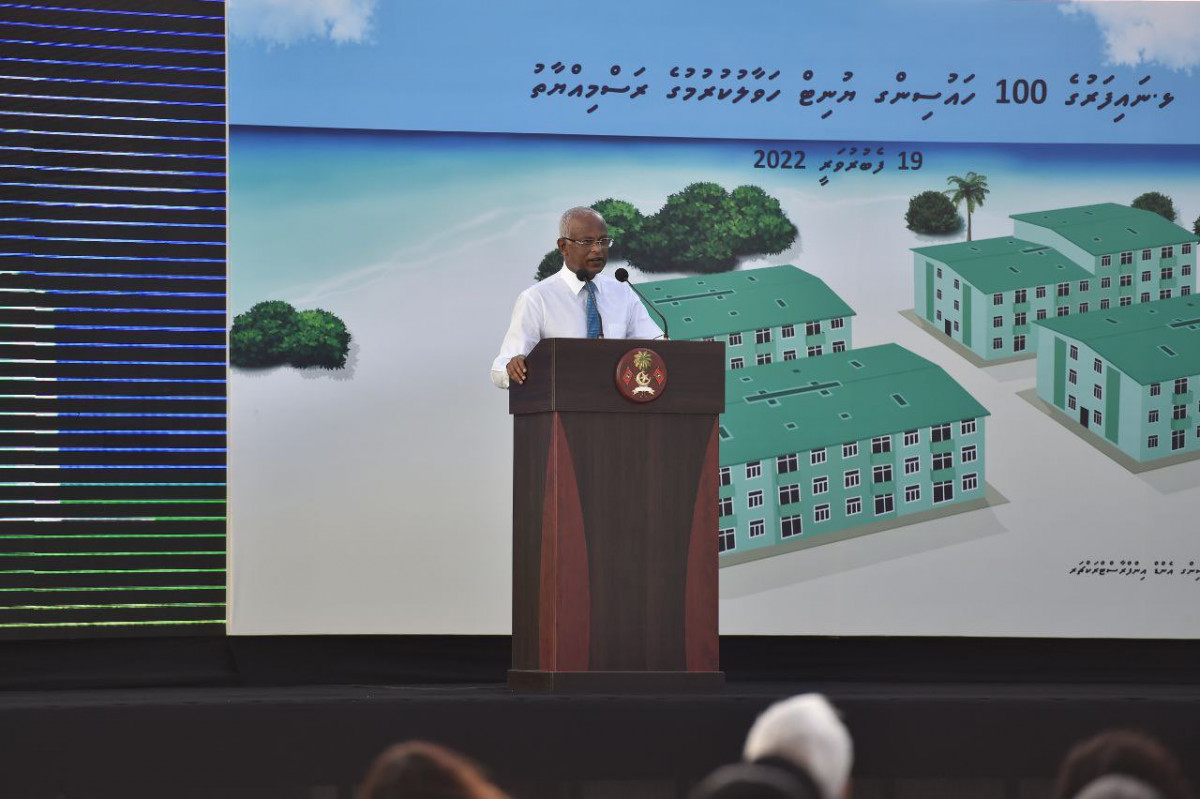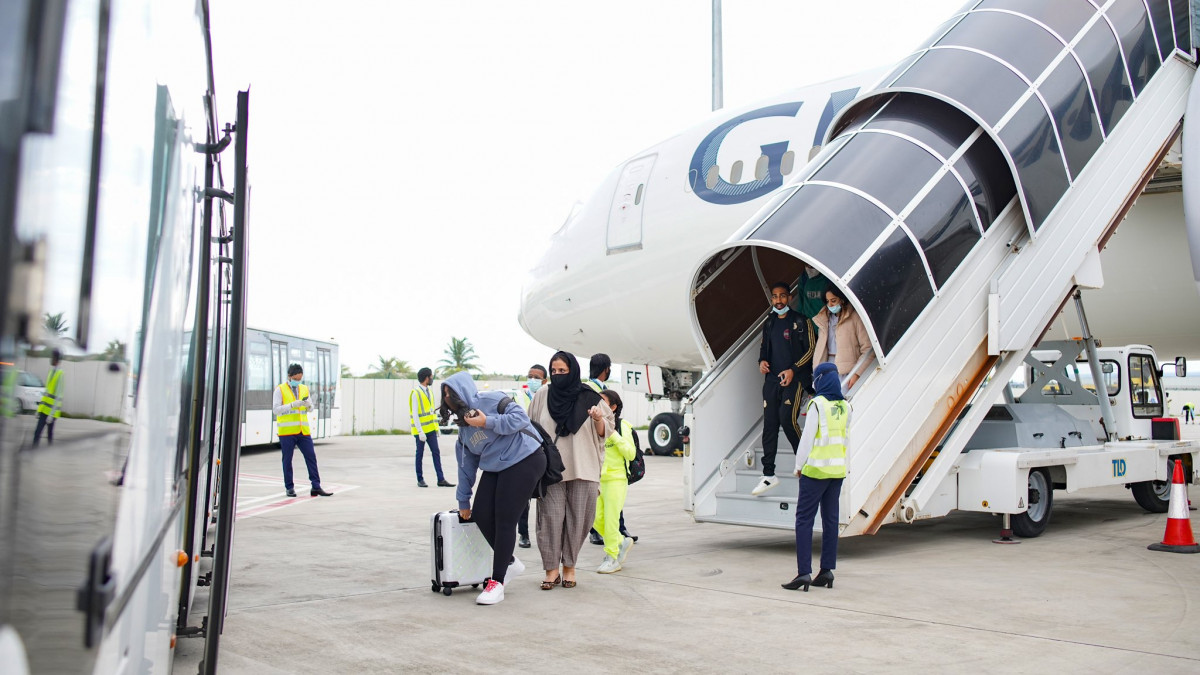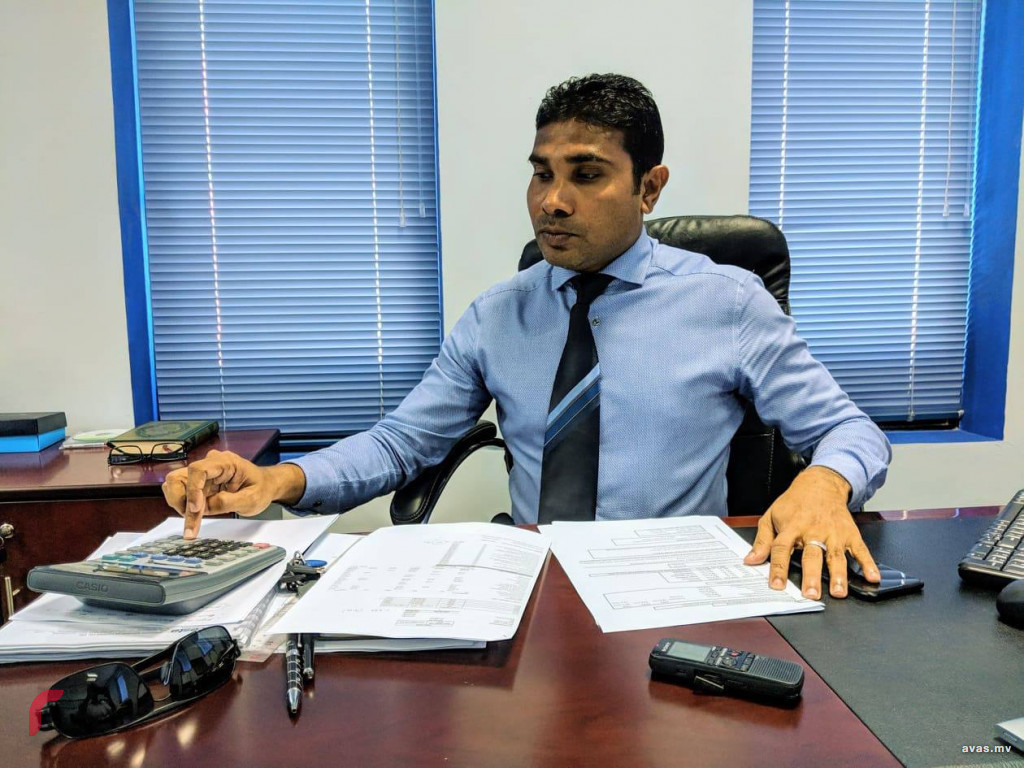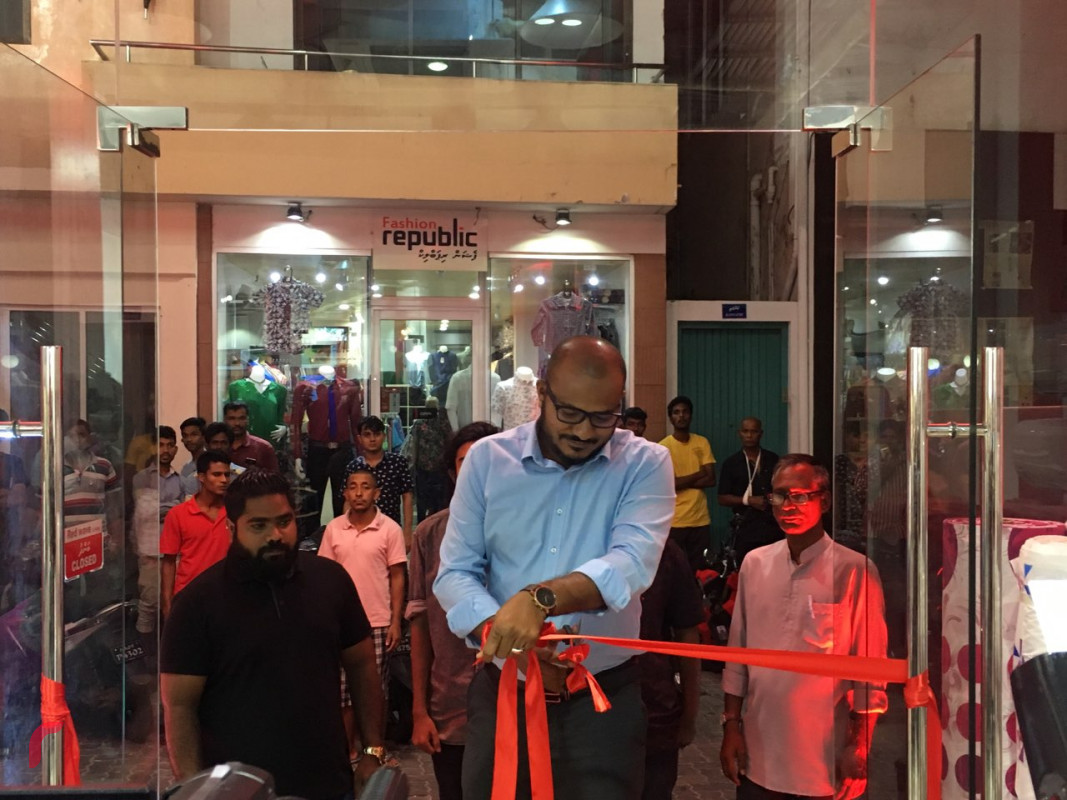Amir gives statement to police over ongoing death threats
The threat explicitly called for Amir to receive the death penalty

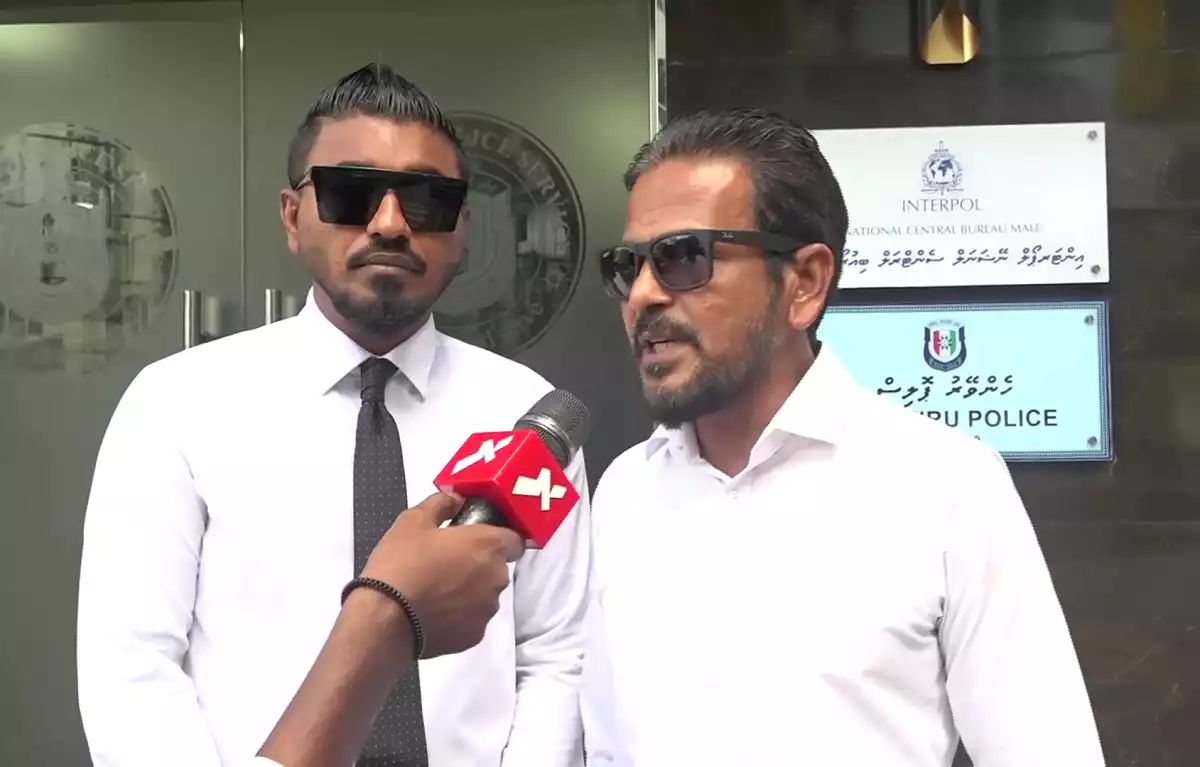
Amir briefs RaajjeTV after giving statements to the police. 17.09.2025.
Head of Programmess and Coordination at privately-run television station RaajjeTV, Amir Saleem has given a formal statement to the Maldives Police Service (MPS) regarding death threats he has received via social media, threats which continue even after the case was filed.
The threat, which explicitly called for Amir to receive the death penalty, was made on September 9 by a Facebook account under the name "Ruksha Razzaq." The post appeared shortly after journalists were forcefully removed from a parliamentary committee meeting discussing the controversial media control bill. Journalists had been staging a protest outside the People’s Majlis in response to the committee’s lack of transparency when the threat was made, tagging a photo of Amir speaking.
RaajjeTV filed a formal complaint with the police institution on September 15, citing the station’s long history of politically motivated attacks and threats. In its complaint, the station stressed the severity of the threat against Amir and requested that the police treat the matter with urgency and seriousness.
RaajjeTV noted that similar threats in the past have resulted in real-world consequences: the newsroom has suffered arson attacks, physical assaults on staff, and repeated intimidation campaigns. The station emphasized that it considers such threats not only a danger to Amir’s life but a broader attack on press freedom and the safety of its entire team.
Even after the complaint was filed and Amir gave his statement to police, the threats continued. Amir’s lawyer, Mohamed Nishan Ibrahim, expressed serious concern over the failure to curb the threatening behavior. Nishan pointed out that in past incidents, threatening social media accounts were typically deactivated after a report was filed. In this case, however, the account remains active, and the threats have persisted with impunity.
Nishan described the situation as dangerous, emphasizing that the individual issuing the threats continues to do so openly and without fear of legal consequences, which he said is deeply troubling and warrants serious action from the police.
After giving his statement to the police, Amir addressed the media and reaffirmed his commitment to journalism despite the threats made against him. He expressed that while he is not personally intimidated by threats related to his work, each one poses a serious risk not only to his own safety but also to the safety and integrity of RaajjeTV as a whole.
Amir added that, given the history of actual violence against RaajjeTV, he has shared his concerns with authorities in hopes that the same mistakes will not be repeated.
That history is grim. On the night of 7 October 2013, despite prior warnings to the police, the RaajjeTV studio was burned to the ground in a coordinated arson attack, destroying all equipment and causing damages exceeding MVR 11 million. The attack was widely seen as an assault on press freedom, and the lack of effective police response remains a stain on the country’s law enforcement record.
In the broader context, the island nation’s media sphere has seen several journalists face brutal attacks, including fatal ones, after warning signs were ignored. A consistent pattern has emerged: police are informed of threats but fail to act until it is too late.
Amir’s case now becomes the latest test for whether the state can ensure protection for journalists, or whether history will continue to repeat itself, at the cost of lives and freedoms.
